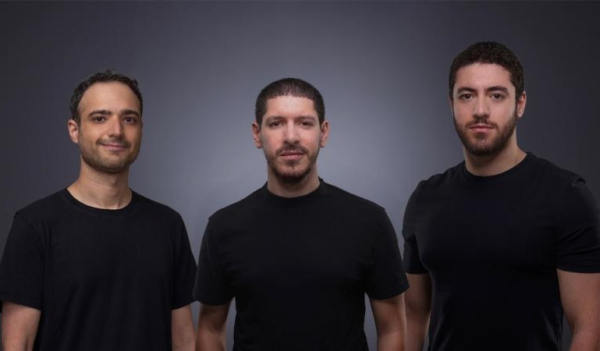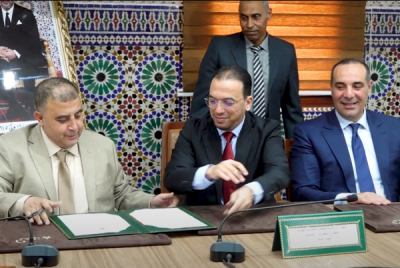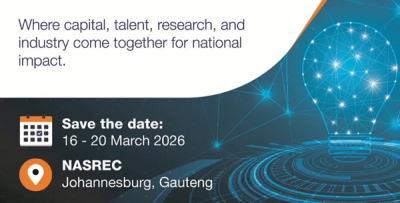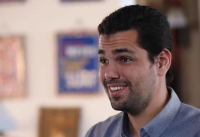Medical robotics is reshaping healthcare in Africa, creating new opportunities to improve care quality and streamline costs. But the continent faces significant hurdles, from workforce training to financing, if these technologies are to deliver tangible benefits for patients.
Medical robotics, covering robot-assisted surgery, diagnostics and hospital logistics, is emerging as a lever for healthcare modernization in parts of Africa.
According to Data Bridge Market Research, the medical robotics market in the Middle East and Africa is forecast to grow at a compound annual rate of 13.5% between 2022 and 2029. The market is projected to expand from $451.26 million in 2021 to $1.14 billion by 2029.
Despite this growth, adoption across Africa remains limited compared with other regions and is largely confined to higher-income countries or those with advanced hospital infrastructure.
Flagship initiatives across the continent
South Africa is among the most advanced markets. Several public hospitals have performed more than 600 robot-assisted procedures, mainly in urology and gynecology. Hospitals report shorter recovery times and fewer post-operative complications.
In Nigeria, authorities recently approved a robotic surgery platform, enabling such procedures in a public hospital for the first time.
In Luanda, Angola, medical teams have conducted telesurgery trials using robotic systems. These tests suggest robotic surgery could be deployed even in settings with limited network capacity.
Morocco has also positioned itself as a regional pioneer. A radical prostatectomy was performed remotely between Casablanca and Shanghai, demonstrating the feasibility of long-distance telesurgery. Additional procedures between Moroccan cities point to growing domestic expertise and institutional interest in robotic surgery.
Beyond surgery, robotics is being deployed in Kenya and other countries for hospital logistics and assistance tasks. This improves operational efficiency and allows nursing staff to focus on clinical care.
Barriers to wider adoption
Cost remains the primary constraint. Robotic systems often cost several million dollars, limiting access for public hospitals. A platform such as the da Vinci 5 typically ranges between $1.5 million and $2.5 million, excluding maintenance and consumables.
Training is another major hurdle. Robot-assisted procedures require specialized surgical and technical skills, as well as ongoing certification.
Institutions such as Ircad Africa in Rwanda are addressing this gap by training African surgeons in minimally invasive and robotic techniques. At the same time, the rise of startups and innovation hubs focused on artificial intelligence, robotics and e-health could support longer-term ecosystem development.
Medical robotics also presents regulatory and ethical challenges, including liability in case of system failure, data protection standards and the role of automation in patient care.
Growth trajectory despite constraints
Globally, the surgical robotics market is expected to exceed $22.89 billion by 2030, according to Spherical Insights. Emerging economies investing in healthcare digitization could capture part of this expansion.
For African countries, scaling medical robotics will depend on coordinated public policy, targeted investment, workforce training and international partnerships. If these conditions are met, robotics could become a practical tool for strengthening healthcare systems and improving the quality of care.
Samira Njoya
As payments and financial operations rapidly digitize, new solutions are emerging to simplify day-to-day business management. Swypex positions itself within this shift with an all-in-one platform dedicated to financial management.
Swypex is a fintech platform developed by an Egyptian startup that centralizes financial functions typically handled by separate tools, including payments, invoicing, expense management and corporate cards.
The Cairo-based company was founded in 2022 by Ahmad Mokhtar, Tarek Mokhtar and Sasan Hezarkhani.
The platform operates as a financial dashboard with a mobile application available on iOS and Android. It has recorded more than 1,000 downloads on the Play Store, according to publicly available data.
Companies can open a business account, issue corporate cards to employees, track transactions in real time and automate expense-related workflows. The platform is designed to replace manual processes such as spreadsheets, paper-based approvals and cash handling with integrated digital systems.
One of its flagship products is a corporate card with dynamic approval limits. Transactions can be approved based on rules set by the finance team before a payment is executed, providing real-time visibility over cash flows and tighter budget control.
Approval-limit cards add precision and speed to corporate finance, Mokhtar said. They bridge traditional cash management and modern corporate spending, allowing companies to move from reactive expense tracking to structured financial control.
Swypex targets small and medium-sized enterprises and fast-growing firms with fragmented financial operations, including multiple payment channels, complex invoicing and difficulties tracking employee expenses. By consolidating these functions into a single interface, the company aims to reduce administrative burdens and improve financial oversight.
As African economies accelerate digital adoption, platforms such as Swypex illustrate a broader shift toward integrated financial management systems designed to automate day-to-day operations.
Adoni Conrad Quenum
After several years of experience in the banking and financial sectors, she turned to entrepreneurship, combining geolocation technology with banking data to transform how users access their money.
Saima Znaidi is a Tunisian fintech entrepreneur and the founder and CEO of DABy Go, a mobile application that helps bank customers locate the nearest working ATMs.
Launched in 2022, DABy Go enables users to avoid wasting time on out-of-service machines. The app is straightforward to use. After logging in and enabling location services, users can view nearby ATMs marked with a color code: green for operational machines, red for out-of-order units, and orange for other statuses. By selecting an ATM, users can access the shortest route, either on foot or by car, via built-in GPS navigation.
The app also sends SMS notifications when a previously unavailable ATM is back in service. It provides practical information, including withdrawal limits per transaction, and allows users to leave reviews or report malfunctions.
DABy Go incorporates advertising features for banks, with promotional content displayed on the app screen during ATM selection through daily or monthly campaigns. By combining precise geolocation with real-time operational data, the platform aims to simplify access to banking services.
Znaidi is also the co-founder of AivaCore, a fintech startup focused on transaction security and fraud prevention. In addition, she serves as a consultant for HelpWise Bank in Tunisia.
She graduated from the Higher Institute of Management of Tunis with a master’s degree in finance in 2005. She began her career that year as a financial accounting analyst at ATM Consulting Tunisia. From 2007 to 2019, she worked in the banking sector, first as a credit analyst and later as a customer relations manager.
Melchior Koba
By combining design and technology, he explores new ways to connect individuals and professionals in the housing sector. His approach aims to streamline access to the market.
Aghiles Mahmoudia is an Algerian entrepreneur and product designer. He is the co-founder, general manager, and chief designer of Mooshir, a mobile app and online platform focused on real estate listings and home services.
Founded in 2021, Mooshir brings together real estate listings and property services on a single platform. It helps users buy, rent, or renovate properties while providing access to services such as construction, maintenance, and interior design.
The platform serves both individuals seeking housing and real estate professionals. It features detailed property listings alongside a dedicated section for home services, including construction, repairs, maintenance, and interior design.
An integrated messaging feature allows users to communicate directly with advertisers to ask questions, negotiate, or request additional information. The platform enables users to manage listings, conduct targeted searches, handle contacts, and promote professional services.
Mahmoudia is also the co-founder and chief designer of Fenovation SPA, a digital creative agency launched in 2015. In 2017, he founded Hanini Shop, a retail startup offering electric bike delivery services.
He earned a degree in industrial and product design in 2019 from the National Institute of Graphic Arts and Industries. He began his career in 2015 as a graphic designer at Lougorss Design. The following year, he joined the Algerian communication agency L’Empreinte Magique in the same role.
In 2019, he joined INTAJ MOHTWAYAT, a company developing mobile solutions, as a UX/UI designer. In 2021, he joined Concordal SPA, a manufacturer of paints, adhesives, derivatives, and sanitary products, where he worked as a product designer.
Melchior Koba
-
Plan includes artisan ID card, national registry
-
Sector employs 22%, contributes 7% to GDP
Morocco will invest 36 million dirhams ($3.9 million) to fast-track the digital transformation of its handicrafts sector, under agreements signed on Wednesday between the State Secretariat for Handicrafts, the Chambers of Handicrafts and their Federation, and the Digital Development Agency. Two additional agreements covering international promotion and institutional support were signed at the same ceremony.
The digitalization agreement provides for the rollout of a professional artisan ID card and the launch of a National Artisan Registry. It also includes the digitalization of services offered by the Chambers and their affiliated bodies. Authorities say the system will streamline administrative processes, improve efficiency, and establish core digital infrastructure for the sector.
The initiative is part of the national development program for handicrafts. The sector is a key contributor to Morocco’s economy, supporting employment, exports, and regional development.
Official figures show the sector employs 22% of the national workforce and contributes 7% to GDP. Exports have grown by 7.6%, while handicraft sales account for 10% of tourism-related foreign exchange earnings. The digital upgrade is expected to boost productivity, formalize activities, and expand access to domestic and international markets.
International promotion and institutional support
The two additional agreements focus on promoting Moroccan craftsmanship abroad, in partnership with SMAP EVENTS, and on a 2026 sector development plan. That plan targets professional structuring, training, and technical support for artisans.
Together, these measures aim to strengthen the sector’s competitiveness and improve market access for artisans, while fostering a more structured and productive ecosystem alongside the digital reforms led by the Digital Development Agency.
Samira Njoya
From March 16 to 20, 2026, the Technology Innovation Agency and the SA Innovation Summit will host the inaugural SA Innovation Week. This landmark event will bring together researchers, entrepreneurs, investors, corporate leaders, and policymakers to drive South African innovation. Activities will take place across several provinces, culminating in a three-day festival at the NASREC Expo Centre in Johannesburg, designed to accelerate funding, strategic partnerships, and the commercialization of new technologies.
M-KOPA said it has disbursed more than 231 billion naira ($170.5 million) in credit to over one million customers in Nigeria since 2019. Most of the loans finance smartphone purchases, followed by cash advances. The company requires no collateral and charges no hidden fees, relying instead on daily micropayments to expand access to digital services and credit for low-income households.
Digital lender Fido Ghana has secured $5.5 million in debt financing to scale its AI-powered lending platform. Using a proprietary credit scoring system based on mobile usage data, the company provides instant loans to small businesses and individuals underserved by traditional banks. The funds will support product expansion and growth across Africa.
In a continent where financial inclusion remains closely tied to physical distribution networks, Moroccan startup WafR is betting on a hybrid model that combines fintech, retail technology and the informal economy.
WafR, a Moroccan startup, has built a digital platform that turns local corner shops known as hanouts into access points for financial and digital services.
Founded in Casablanca in 2021 by Ismail Bargach and Reda Sellak, the company said in February it had raised $4 million to expand its technology and scale operations.
Its solution includes a mobile app available on iOS and Android, with more than 100,000 downloads on the Play Store, according to platform data. Through its website and app, small retailers can offer services such as mobile top-ups, bill payments and other digital transactions without requiring customers to visit a traditional bank branch.
The model builds on the trust neighborhood merchants have long established within their communities. In a country where cash remains dominant and access to financial services is uneven, these shops are emerging as a key last-mile channel for digital finance.
WafR says it has nearly 20,000 active merchants on its platform, making it one of Morocco’s largest digitized retail networks. The startup now plans to expand into peer-to-peer transfers and domestic remittances, strengthening its role as a community-based fintech platform.
Beyond financial services, WafR also enables consumer goods brands to run targeted promotions and analyze purchasing patterns using data generated by traditional retail outlets.
The strategy reflects a broader shift in African fintech. Rather than displacing existing networks, some startups are opting to digitize informal retail structures to accelerate the uptake of digital services.
Adoni Conrad Quenum
Drawing on marine research technology, she aims to decode the biological signals of fish, a simple yet decisive idea for an industry striving for sustainable efficiency.
Sarah Carroll is a South African scientist and entrepreneur. She is the co-founder and chief executive of MariHealth Solutions, a deep-tech company specialising in aquaculture health and nutrition. Her aim is to improve how fish farms and feed manufacturers monitor operations and enhance performance.
Founded in 2021, MariHealth Solutions seeks to deepen understanding of fish physiology under different environmental, pathogenic and dietary conditions. The company acts as a decision-support partner, converting complex biological data into practical recommendations for aquaculture professionals.
Its technologies monitor fish health and welfare, analyse disease mechanisms and evaluate vaccine efficacy. They also measure the real-world impact of novel ingredients, new feed formulations, and varying farming practices and environmental conditions on animal physiology.
Carroll holds a bachelor’s degree in zoology from Rhodes University (2013). She earned a master’s degree in marine biotechnology in 2016 and a PhD in biochemistry and molecular biology in 2020, both from the University of Cape Town. She worked there as an associate researcher from 2020 to 2022.
Melchior Koba
More...
He offers a seamless alternative to traditional financial channels. His solution reflects the ambition of a more open and more efficient market.
Victor Alade is a Nigerian technology entrepreneur. He is the chief executive of Raenest, a fintech company he co-founded in 2022 with Richard Oyome and Sodruldeen Mustapha.
Raenest allows users to open foreign currency accounts in U.S. dollars, British pounds or euros to receive international payments. Those funds can then be used for online purchases, travel expenses, money transfers or savings in the selected currency. The platform also offers virtual and physical cards for online payments and subscriptions.
The startup primarily targets freelancers, content creators, travelers, online shoppers, students and social commerce sellers. It also offers rewards programs to encourage regular use of its services.
Raenest Business
Raenest is developing a business-focused product called Raenest Business. More than 600 companies already use the platform to manage international payments and receive funds in more than 13 countries. Businesses can open an account, collect payments from foreign clients and pay employees or contractors across multiple markets.
The platform supports withdrawals to bank accounts or mobile money wallets in more than 70 countries. It also integrates with major third-party services including PayPal, Payoneer, Wise, Mastercard and Revolut.
Alade holds a bachelor’s degree in electrical and electronic engineering from the Federal University of Technology, Minna, Nigeria, awarded in 2014. After graduating, he worked as a software engineer at several technology companies, including Procrea8 Technology Solutions, Jumia Group and Andela.
Melchior Koba
-
Tunisia CDC launches MAIR for greentech scale-up
-
Program targets commercialization-stage startups, SMEs
-
Tunisia startups raised $6.6 million in 2025
Tunisia’s Caisse des Dépôts et Consignations (CDC) on Tuesday announced the launch of the first cohort of the MAIR program, Market Access for Impact and Resilience. The financing mechanism targets greentech startups and small and medium-sized enterprises in the commercialization phase.
The program aims to support industrial scale-up, facilitate initial market entry, and strengthen revenues for selected companies.
MAIR prioritizes sectors linked to the green transition, including renewable energy, sustainable mobility, eco-construction, waste management, sustainable agriculture, water technologies, energy efficiency and biodiversity. By providing financing at a stage when funding needs increase for industrialization and commercialization, MAIR seeks to bridge the gap between seed funding and full commercial rollout.
MAIR is deployed under the GreenTECH initiative led by Smart Capital and integrated into the Greenov'i project. The project is funded by the European Union through the Tunisie Verte et Durable program and implemented by Expertise France in collaboration with the International Center for Environmental Technologies of Tunis, the Ministry of Environment, and the Ministry of Economy and Planning.
Financing architecture
The mechanism forms part of a broader financing framework that also includes VAIR, Venture Acceleration for Impact and Resilience, which supports startups in the ideation phase as they develop proofs of concept. The overall program plans to fund 32 early-stage startups and support 10 startups and SMEs in accessing markets, with a target of roughly 300 direct jobs in green transition sectors.
The launch comes amid limited funding for Tunisia’s entrepreneurial ecosystem. According to Wamda’s annual report, Tunisian startups raised $6.6 million across 13 deals in 2025, below levels recorded in several other Middle East and North Africa markets. In that context, public instruments dedicated to impact-driven innovation are positioned as key support mechanisms for early-growth companies.
By targeting industrial segments linked to the green transition and focusing on companies at a later stage of development, MAIR aims to strengthen the ability of Tunisian startups to turn innovations into marketable products and secure a sustainable position in their markets.
Samira Njoya
-
Orange Maroc launches Yo Max 5G plans
-
Introduces Livebox 7 router with Wi-Fi 7
-
Morocco counts 57.1 million mobile connections
Orange Maroc unveiled two new consumer offerings on Tuesday in Casablanca: customizable Yo Max 5G mobile plans and the Livebox 7, a next-generation router which the company described as a global first. Both products are built on the carrier's recently launched 5G network.
The Yo Max 5G plans allow subscribers to tailor their mobile plan by selecting services suited to their needs, including video and music streaming, gaming and e-learning. Available in six tiers priced between 99 and 649 dirhams (approximately $11 to $71), the plans offer up to 160 gigabytes of data or unlimited data. Subscribers can manage their plan via the Maxit app.
The Livebox 7 is the first consumer router to feature Wi-Fi 7 and introduces the prplOS operating system, which allows applications to be installed directly on the device. These include a built-in VPN and parental controls. The router is equipped with 10 smart antennas designed to deliver stable speeds throughout the home. Orange Maroc said the platform also gives local developers the opportunity to build applications tailored to the Moroccan market, expanding what it calls the Nova Box ecosystem.
Orange Maroc said the products support Morocco's digital transformation and respond to rising demand for connected services, including the proliferation of screens in households, e-learning, streaming and gaming. According to DataReportal, Morocco had nearly 57.1 million mobile connections at the end of 2025, equivalent to roughly 148% of the population, and more than 35 million internet users, with a penetration rate exceeding 92%. DataReportal attributed the mobile figure to widespread use of multiple SIM cards per household and per individual.
Samira Njoya
The Mastercard Foundation has opened applications for the FAST Fund, an initiative for alumni of the YALI Network, African Leadership Academy, the Anzisha Prize and the Scholars Program. The fund aims to help alumni launch or scale their ventures through financial support and targeted assistance.















